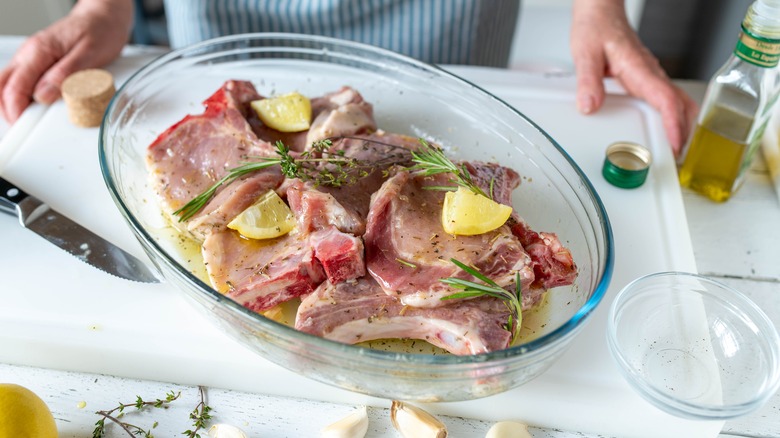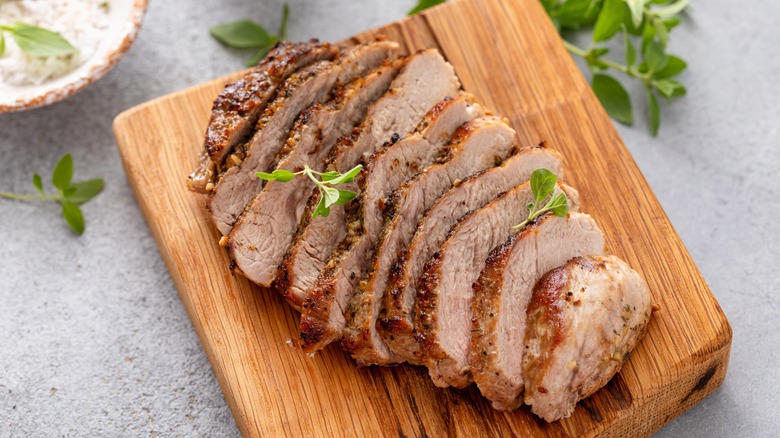The Marinating Mistake That Is Ruining Your Pork Chops
It's common knowledge that using a marinade makes your meat more flavorful and can even help tenderize it. It's also common knowledge that pork chops are one cut of meat that can be hard to cook well. So knowing these two things, you might think that marinating your pork chops for the longest time possible would be the key to ensuring you get them right. However, Michael Lomonaco, chef at Porter House, shared the truth with us: marinating pork chops for too long can eliminate the pork's natural juices, resulting in meat that is dry and tough rather than juicy and tender.
According to Lomonaco, the mistake that ruins a majority of pork chops is: "Marinating in too much liquid for too long a time." Lomonaco explained that excessive marinating "doesn't enhance the juiciness but rather dries it out by extracting all the natural juiciness from the pork itself." Additionally, if your marinade has too much acid, it can cause the meat to start partially pre-cooking, which will make it tough once actually cooked.
How to marinate pork chops for the best results
All this is not to say that you shouldn't marinate your pork chops! Using a tried and true marinade recipe and watching the clock can make for tender, flavorful, and juicy pork chops. Although the USDA says it's safe to eat fresh pork that's been marinated in the refrigerator for up to 3-5 days, many recipes say that up to 24 hours of marinating is sufficient. But even this might be too long for liquid marinades. For the best results in terms of both flavor, moisture, and texture, marinate your pork chops for 6-8 hours in the refrigerator.
What you put in your marinade is largely up to you. For the oil, olive oil is a top choice, but you can also use peanut, avocado, or vegetable oil. Any type of vinegar can work well for the acid — try apple cider, red wine, or even rice vinegar — or sub in lemon or lime juice. And the salty component isn't limited to sea salt! Soy sauce, Worcestershire, and miso paste can all add different salty flavors. There's no end to the combination of aromatics that you can create either. Garlic, herbs like basil, parsley, cilantro, or thyme, red pepper flakes, any spices or seasoning blends like Italian or Creole, and ginger will all pack a flavorful punch. And to balance everything out, add a bit of sweetener like maple syrup or honey.

